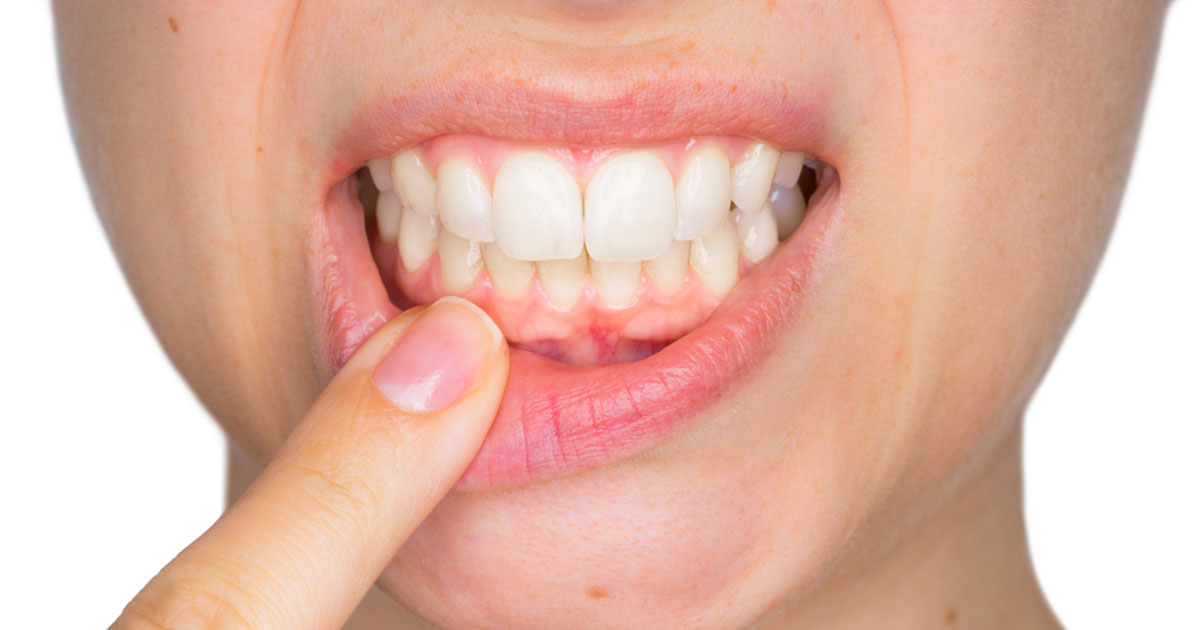What Causes Bleeding Gums?
Posted On 7/10/2019 12:00:00 AM by Bruce Kanehl

Looking down at your sink and seeing a spot of red after brushing can be a little scary. Your mind might jump to the worst possible conclusions. But, in many cases, bleeding gums are a problem with your oral hygiene and not a sign of impending doom. With that said, it's still important to know why it happens. So, here's what you should know about bleeding gums - what causes them and what to do about them.
The Causes of Bleeding Gums
There are a number of things that can cause bleeding gums, and they range from relatively benign to something worthy of a trip to the doctor:
- Gingivitis or Gum Inflammation - Gingivitis occurs when plaque builds up on the teeth and inflames the surrounding gum tissue. This inflamed tissue is much more sensitive and is prone to bleeding even when you are brushing correctly.
- Periodontal Disease or Gum Disease - If gingivitis goes untreated for long enough, it develops into gum disease, which will also cause your gums to bleed.
- Brushing Too Harshly - This is one of the most common causes of gum bleeding. In fact, most people are way too hard on their teeth when they brush. We'll talk about proper brushing techniques later.
- New Flossing Routine - If you've decided to pick up flossing for the first time, or after a long break, you'll probably deal with some bleeding at first. This isn't something to worry about and it should go away in time. Dealing with a little bleeding is worth it given how important flossing is for your oral health.
- Pregnancy Gingivitis - The hormonal changes that occur during pregnancy can cause your gums to swell up as well. This is called "pregnancy gingivitis".
- Medication - There are some medications that can cause bleeding gums. Anticoagulants, or blood thinning medications, are the most likely to have this as a side effect.
- Other Health Conditions - Your bleeding gums aren't necessarily caused by poor oral hygiene or some type of oral disease. Bleeding disorders and certain types of vitamin deficiencies (mostly vitamins C and K) can also cause your gums to bleed.
So, now that you know what causes bleeding gums, what can you do about them?
What to Do About Bleeding Gums
The first thing you need to do is narrow down the list of potential causes. A good start would be taking a look at your oral hygiene. Are you not brushing and flossing daily? Have you recently started flossing? Do your gums look swollen or red? If so, you probably need to "brush up" on oral hygiene. Which brings us to proper brushing technique.
Proper Brushing Technique
Although it might sound counterintuitive, brushing can actually be bad for your teeth and gums. But only you're doing it wrong. You should brush in a circular motion and apply minimal pressure. Make sure you're brushing long enough. You should aim to brush for around two minutes, two to three times a day. If you're brushing and flossing properly and you still experience bleeding gums, then it's time to take a trip to your dentist.
See Your Dentist
If improving your oral hygiene doesn't work, or you're experiencing severe or daily bleeding, then you should go to the dentist. Your dentist will be able to help you determine whether or not your bleeding gums are the result of poor technique, oral disease, or some other health condition.
For more information about your oral health, please contact Kanehl Dental.
Bruce A. Kanehl, D.D.S.
7933 Baymeadows Way #5
Jacksonville, FL 32256
(904) 731-2162
To learn more about how we can make you smile, request a consultation today.
Dr. Kanehl is one of a select few in the Jacksonville area to be a member of the American Academy of Dental Sleep Medicine and to treat sleep apnea with oral appliance therapy.




